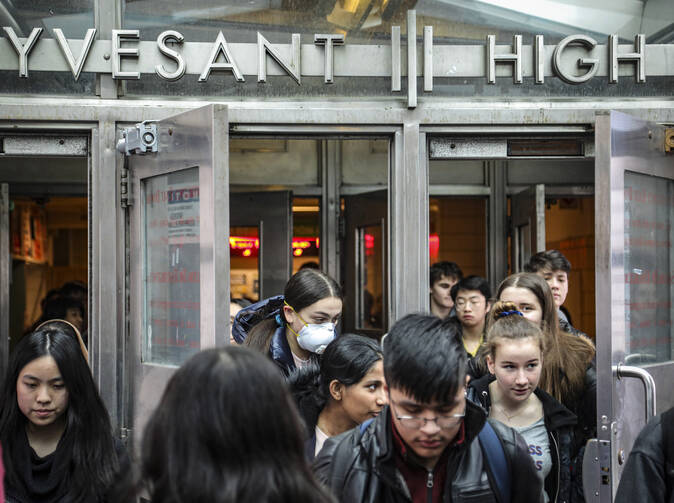There are many things we do not know about our experience with Covid-19, but we do know that this pandemic will end. There will be a “normalcy” to which we will return, even if it will look and feel different. All of us will have changed in some way. Our resiliency—as individuals, as families, as communities, as a nation and as a world—is being tested.
Scientists define resilience as one’s capacity to absorb disturbance and then reorganize so as to regain one’s identity. Resilience is not about not changing. It may require evolving as a result of all that is learned and experienced through a disturbance. We are not all born resilient, but we are all born with the capacity to acquire resilience.
Both educators and parents are now struggling with schooling at home during the pandemic, and they are realizing that they are underprepared and under-resourced.
My mother taught me resilience. She lived 97 active and engaged years, transitioning through many stages with enthusiasm in the face of challenges and difficulties. Her parents were immigrants from Lebanon, and as the second oldest of nine children, she began working at her father’s grocery store at age 13. Right before she passed away she struggled with pneumonia and said to me, “Honey, I’m not going on the shelf.”
I am an educator. Throughout my professional life, I have been a teacher, an administrator, a university president and an advocate for education. Educators have always gone beyond teaching the “three Rs” of reading, writing and arithmetic, and today we seek to instill in our students that fourth “R” of resilience. Both educators and parents are now struggling with schooling at home during the pandemic, and they are realizing that they are underprepared and under-resourced—but also under pressure to ensure that their students are learning to their fullest capacities. Such an expectation is unrealistic, but realizing this does not release them from the pressure.
They are not the only ones grieving unrealistic expectations. Children are grieving the loss of their playgrounds and playmates, the social interactions with their friends, the structure of the classroom and school schedule, and their sports teams and music classes and clubs. They are grieving the physical absence of their teachers, their grandparents, their neighbors, and grieving for graduations, proms and birthday parties that are postponed or canceled. As we struggle to teach them reading, writing and arithmetic, how do we also teach them resilience? How do we teach them how to regain their identity throughout their loss?
As we struggle to teach them reading, writing and arithmetic, how do we also teach them resilience? How do we teach them how to regain their identity throughout their loss?
We can instill resilience by teaching three W’s. The first is worth: Every student needs to believe that he or she is worthy—worthy of our time, our interest, our belief in them, worthy of our highest expectations and, at this moment especially, worthy of our feelings of incompetence. We do not know all the answers, and we are learning ourselves about this reality of schooling at home on the front lines. We do not have to pretend otherwise.
The second W is will: The discipline and courage to achieve is essential. Will incorporates a grit and sustained persistence to overcome obstacles when pursuing your passion or believing in the justice or rightness of a situation.
The third W is wonder: Students must have a belief in the promise, a belief in the more that we can become, as well a belief that we can make a difference by choosing to create the more for our world. They must have a curiosity that is fed by an optimism of all that is possible, even when experiencing grief.
The real test of our individual and collective resilience is: How will we change from the pandemic and who will we become? This will not be decided when the pandemic ends; rather, it is being decided now.
Isn’t it true that we do not want to be the same when our “normalcy” occurs? I think we want to be different. We want the ordinary to become extraordinary. We want those most vulnerable in our midst to become our neighbors, and we want our communities to thrive in our togetherness. We want our nation to see itself as one among many—interconnected and interdependent.
Let us together spread the grace of resilience now so that we will become more than we were before.










